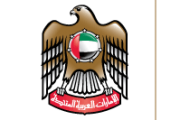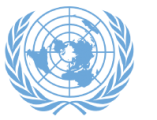Thank you, Madame President, for convening this Open Debate on Women, Peace and Security, on the important topic of displaced women and girls. May I also congratulate you on your successful presidency of the Security Council this month. The UAE welcomes the comprehensive Presidential Statement adopted by Council members by consensus this morning. And we join others in thanking the Secretary-General for his recent report, which provides important information reflecting the progress that has been made thus far, and the considerable challenges that remain in the full implementation of this agenda. We would also like to thank Executive Director of UN Women for her bold call to action. Additionally, we would like to thank the briefers this morning for their thoughtful and important presentations.
Today’s Open Debate focus on displaced women and girls is of utmost importance, as new crises and outbreaks of violence increase the levels of forced displacement. Today’s 51 million refugees and displaced persons represent the largest number of refugees, asylum-seekers, and IDPs since World War II; three quarters of these displaced persons are women and children.
Many here have acknowledged in their statements that we must work to address this. We must ensure consistent leadership to strengthen the meaningful participation of and leadership opportunities for women, including in tackling the root causes and impacts of displacement. We need to ensure the consistent and effective implementation of Security Council resolutions on women, peace and security. Within the UN system, we need to encourage more gender-sensitive conflict analysis and stand by our WPS commitments so that we can best understand the progress that has been made, but also the challenges that remain in implementation. Through these actions, we the Member States, can do our part to ensure that the women, peace and security agenda remains central to efforts to achieve our shared goal of international peace and security.
Madame President,
It has been fourteen years since the historic adoption of UN Security Council resolution 1325, through which the international community formally recognized the vital role that women play in the prevention, mitigation, and resolution of conflict, in addition to recognizing the differential burden that women and girls bear during conflict.
Much progress has been made in the WPS field, and within the UN system, the women, peace and security agenda has been increasingly integrated. The data in the Secretary General’s report shows important progress. In terms of prevention, there is more consistent attention to women, peace and security in Security Council deliberations: three quarters of UN resolutions adopted in 2013 contained WPS-related references. Within the protection pillar, there have been improvements in peacekeeping mission mandates, monitoring, and training, with clear directives calling for the increased participation of women in the UN police and military. At the level of relief and recovery, there has also been an increased focus on women’s economic empowerment in peacebuilding, with a growing recognition of the importance of post-conflict economic stability in Security Council resolution 2122 and the declaration adopted by the Peacebuilding Commission on women’s economic empowerment in 2013. These resolutions recognize that women’s economic empowerment generates long-term social dividends, as evidence shows that women tend to reinvest up to 90% of their income back into their families. The economic security of women in post-conflict situations is therefore fundamental to ensuring lasting peace and stability.
Yet, many challenges remain. Today’s statements recognize that there are still unacceptable lags in the implementation of widely-accepted norms despite the clear presence of political will. For example, while there has been increased global attention towards sexual violence in conflict, there is still much to be done to ensure that this attention is translated into action, including justice and assistance for the victims. Widespread violations of international humanitarian law continue worldwide, as do the challenges in ensuring the protection of civilians. The culture of impunity remains widespread. As many Member States have recognized, we are also navigating a shifting security context where the rise of violent extremism has led to increased and targeted violence against women and girls, which is unacceptable to the UAE and to all responsible Member States.
Although this is a global reality, it is a particularly urgent problem in our region. In Iraq, Jordan, Lebanon, Syria, and Turkey, four out of five refugees and displaced persons are women or children. Within Syria, there are 4.25 million internally displaced persons, with 6.8 million in need of humanitarian assistance. We note the important data brought to light by the September 2014 International Rescue Committee report on the plight of Syrian women and girls. The collection of data and funding of research must remain a priority for the international community in order to further bolster our arguments and to ensure that justice prevails with exception for all.
The numbers of the forcibly displaced continue to rise daily, with many fleeing to neighboring states, and require our urgent attention. Displaced persons comprise one fifth of Lebanon’s population. In Jordan, the Za’atari refugee camp is Jordan’s third largest “city”, in terms of sheer numbers. The pressure on host communities is enormous, with ramifications on neighboring countries.
The UAE has tried to play its part, and has taken measures to address the needs of those forcibly displaced and to prevent and protect women from violence at the international level and regional levels.
The UAE has built the Mrajeeb al-Fhood refugee camp on the Jordanian border for Syrian refugees, exclusively for married couples, children, and women. The family-focused nature of the camp has helped to protect women from harassment, extra-marital violence, and exploitation, and has served to reduce overall levels of violence towards women and children within the camp.
The UAE is also committed to advocacy at the UN level. We have launched a Panel Series on Women, Peace and Security, in partnership with UN Women, and Georgetown Institute for Women, Peace and Security in support of the Global Study on the Implementation of Security Council resolution 1325. The series aims to address the challenges associated with the implementation of 1325, as well as identify emerging issues, and raise opportunities to further the goals of the WPS agenda.
Yesterday, our panel discussion explored the many roles that women play both in countering violent extremism and also sometimes as protagonists in its spread. The discussion was quite nuanced, but some clear recommendations and themes emerged. First, women must be included at the conceptual stage in the development of effective strategies to counter violent extremism. Second, we must acknowledge that women are not a homogenous group, and our approach should reflect that. Third, we need to create political spaces for the many voices of women to be heard. It is in this space that we may find solutions, within local and culturally-specific contexts. Fourth, we must recognize women as the agents of change that they are, and not solely victims. Fifth, we must always challenge the dominant narrative that views violent extremism through a strictly security lens. By securitizing women’s roles in strategies to counter violent extremism, we run the risk of further marginalizing women and women’s organizations. We need to take a more holistic approach towards forced displacement, where we look outside of conventional security approaches, and focus on the development and everyday needs of the forcibly displaced. By addressing these everyday needs, we can help create an environment that allows for women, their families and communities to fully participate in the prevention of violent extremism in their own societies. And finally, we must continue to call for increased funding for data collection and reporting to ensure that what is emerging as a consensus in the conversation on the women-peace-security nexus is reinforced by the evidence.
The UN remains the central forum for addressing the women, peace and security agenda. Much progress has been made through the continual, concerted efforts of UN Women and UNHCR in addressing the gender-specific needs of IDPs and refugees. The UAE stands with our UN and international partners in this important endeavor and urges for 2015 to be the year where we move the dial forward in a significant way.
Thank you.


